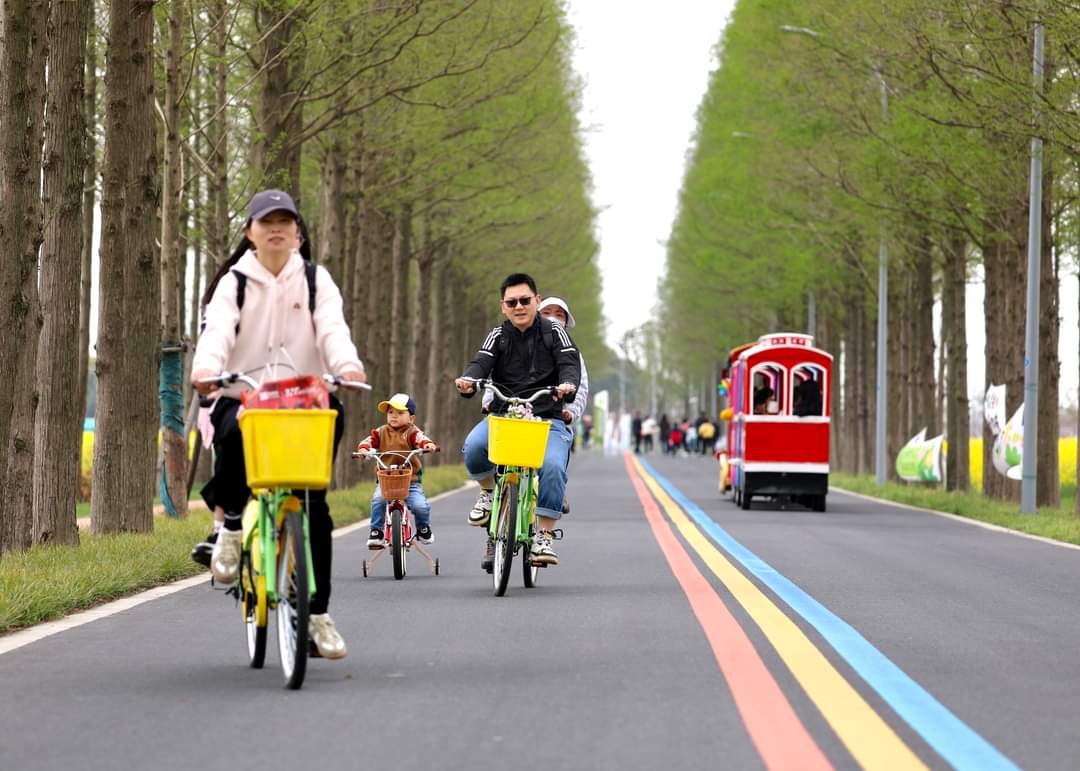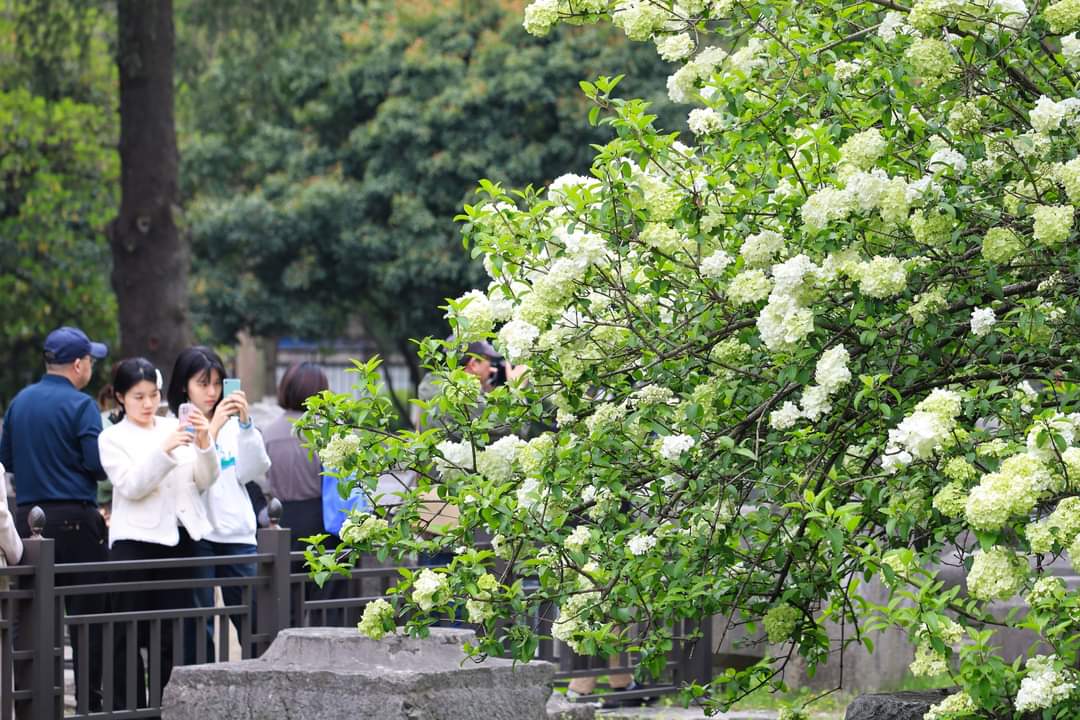Qingming Festival
QingmingFestival, also known as Tomb-Sweeping Day, is a fascinating blend of remembrance and rejuvenation. It's a traditional Chinese holiday that fal
 |
Qingming Festival |
Qingming Festival: A Celebration of Ancestors and Springtime Renewal
QingmingFestival, also known as Tomb-Sweeping Day, is a fascinating blend of remembrance and rejuvenation. It's a traditional Chinese holiday that falls around the beginning of April, on the 15th day after the Spring Equinox. While the day is dedicated to honoring deceased ancestors, it also coincides with the vibrant arrival of spring, making it a time for both reflection and celebration.
Honoring Ancestral Ties
The core tradition of Qingming involves visiting ancestral tombs. Families pay their respects by cleaning the gravesites, offering food and tea, burning incense, and sometimes even setting off firecrackers. This practice reflects the deep respect for ancestors ingrained in Chinese culture. By remembering and caring for those who came before them, people express gratitude and strengthen family bonds that transcend generations.
Springtime Refreshment
Qingming isn't just about somber remembrance. The beautiful spring weather encourages people to embrace the outdoors. Families often enjoy picnics near cemeteries, a tradition symbolizing a shared meal with their ancestors amidst nature's renewal. Kite flying is another popular Qingming activity, with vibrant kites soaring in the clear spring sky, adding a playful touch to the day.
Unique Traditions
Beyond these common practices, regional variations enrich the Qingming experience. In some areas, people consume special foods like "qingtuan," green dumplings symbolizing rebirth. Willow branches, believed to ward off evil spirits, might be placed on doorways or worn by celebrants.
A Festival's Enduring Significance
Qingming Festival offers a glimpse into the heart of Chinese culture. It beautifully combines reverence for the past with the joy of spring's renewal. This unique holiday reminds us of the importance of honoring our ancestors while embracing the ever-changing cycle of life.
The Modern Face of Qingming
While Qingming's core traditions remain strong, the festival is adapting to the modern world. Here's how:
Urbanization's Impact: Living in densely populated cities can make visiting ancestral tombs challenging. Virtual tributes and online memorials are gaining popularity, allowing people to pay respects remotely.
Environmental Concerns: The burning of incense and paper money during Qingming has raised environmental concerns. Eco-friendly alternatives like burning paper made from recycled materials or planting trees in memory of ancestors are being explored.
A Day for Family Reunion: Qingming often coincides with school breaks, offering a valuable opportunity for families, especially those spread across vast distances, to reunite and share stories about their ancestors.
Qingming's Significance Beyond China
The Qingming Festival isn't just celebrated in China. Many countries with significant Chinese diaspora communities, like Singapore, Malaysia, and Vietnam, also observe the tradition. This shared cultural heritage strengthens bonds within these communities and serves as a reminder of their roots.
Looking Forward: A Festival in Flux
Qingming Festival continues to evolve as it adapts to changing demographics, environmental concerns, and technological advancements. However, its core message of honoring the past and embracing the future remains constant, ensuring its relevance for generations to come.
Qingming Festival: A Bridge Between Past, Present, and Future
A Celebration of Culture and Heritage
Qingming Festival transcends a simple day of remembrance. It's a vibrant expression of Chinese culture and heritage. The meticulous cleaning of tombs signifies respect for tradition, while the consumption of special foods and kite flying represent the continuation of cultural practices passed down through generations. This blend of tradition and celebration strengthens cultural identity and fosters a sense of belonging.
A Time for Reflection and Personal Growth
Qingming isn't just about honoring ancestors; it's also a period for personal reflection. Visiting ancestral gravesites prompts contemplation on mortality, lineage, and the impermanence of life. This introspection can inspire individuals to appreciate their own lives more deeply and strive to make a positive impact on the world, just as their ancestors did before them.
A Catalyst for Social Change
Qingming can also be a springboard for social change. Discussions surrounding eco-friendly alternatives to traditional practices raise awareness about environmental issues. The act of remembering ancestors can inspire people to contribute to society and leave a lasting legacy, just as their ancestors did for them.
A Festival for Everyone
While Qingming holds deep significance for those of Chinese descent, its themes of honoring the past and embracing new beginnings resonate universally. It's a reminder to cherish our loved ones, both present and past, and to find joy in the beauty of spring's renewal. Whether participating in traditional customs or simply appreciating the spirit of the season, everyone can connect with the essence of Qingming.
Qingming Festival: Beyond Tradition - A Look at the Future
The future of Qingming Festival is likely to see a further integration of technology. Imagine virtual reality experiences that allow people to visit meticulously recreated ancestral villages or online platforms that facilitate remote offerings and family storytelling. These advancements could bridge geographical distances and make ancestral commemoration more accessible for everyone.
A Focus on Sustainability
Environmental consciousness is on the rise, and Qingming traditions are likely to adapt accordingly. Biodegradable offerings, online tributes with a tree-planting component to offset environmental impact, and government initiatives promoting sustainable practices at cemeteries are all possibilities. Qingming could become a model for how to balance cultural traditions with environmental responsibility.
A Celebration of Diversity
As China's global influence grows, the Qingming Festival may evolve into a more inclusive celebration. Cultural exchange programs could see international participants learning about the traditions and incorporating elements into their own memorial practices. This could foster a deeper understanding of different cultures' approaches to honoring the deceased.
A Day of Intergenerational Bonding
In today's fast-paced world, Qingming can be a powerful tool for strengthening intergenerational bonds. Grandparents can share stories about their ancestors with younger generations, fostering a sense of connection to family history. Educational programs and workshops focused on Qingming traditions can bridge the generational gap and ensure the continuation of these cultural practices.
An Evolving Legacy
The Qingming Festival is a testament to the adaptability of Chinese culture. By embracing innovation, prioritizing sustainability, and fostering inclusivity, the festival can ensure its relevance for future generations. Qingming serves as a powerful reminder that honoring the past doesn't mean being stuck in it, but rather using ancestral wisdom to build a brighter future.




Join the conversation